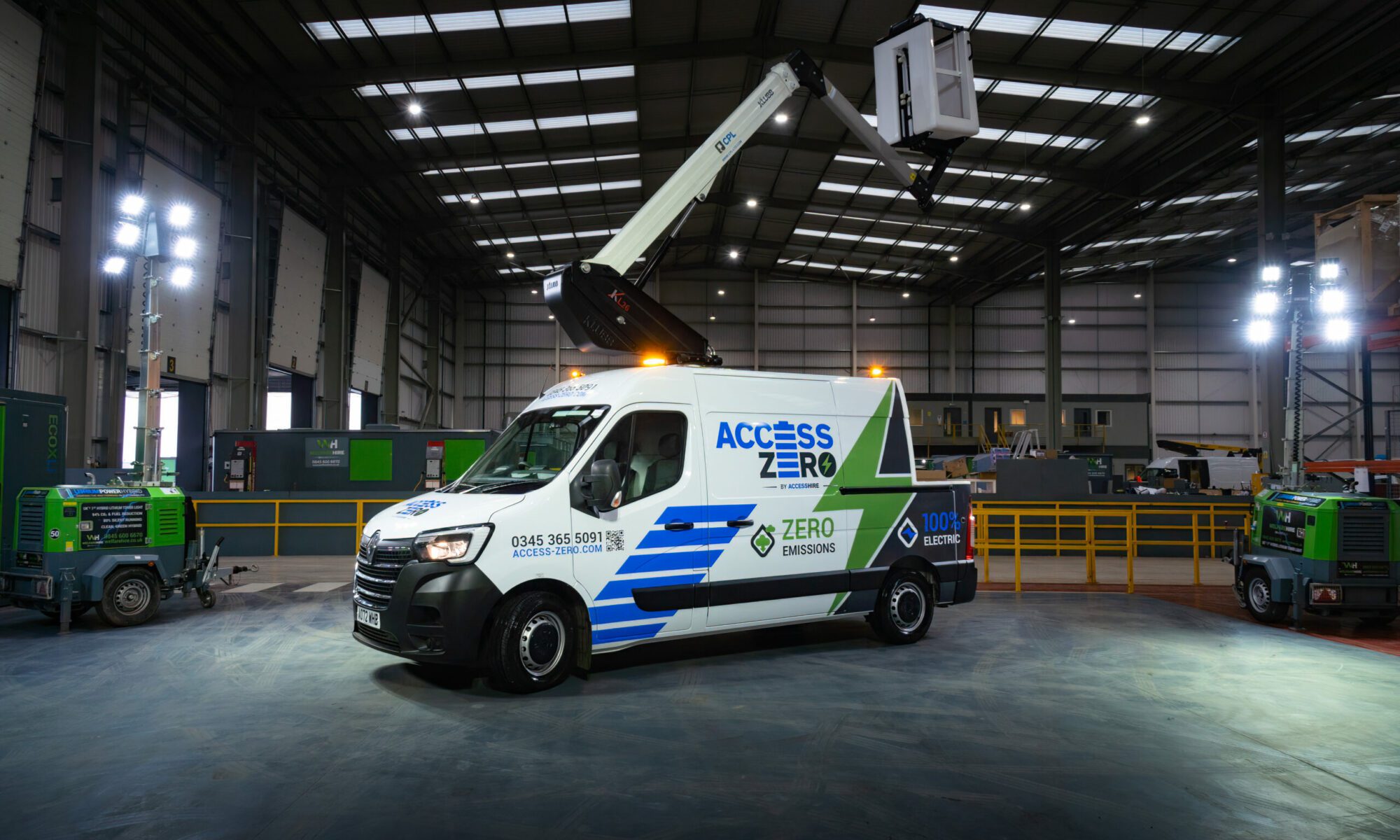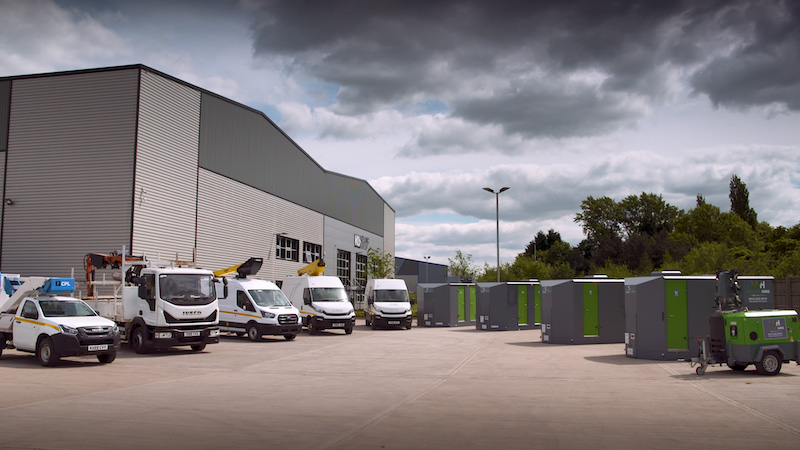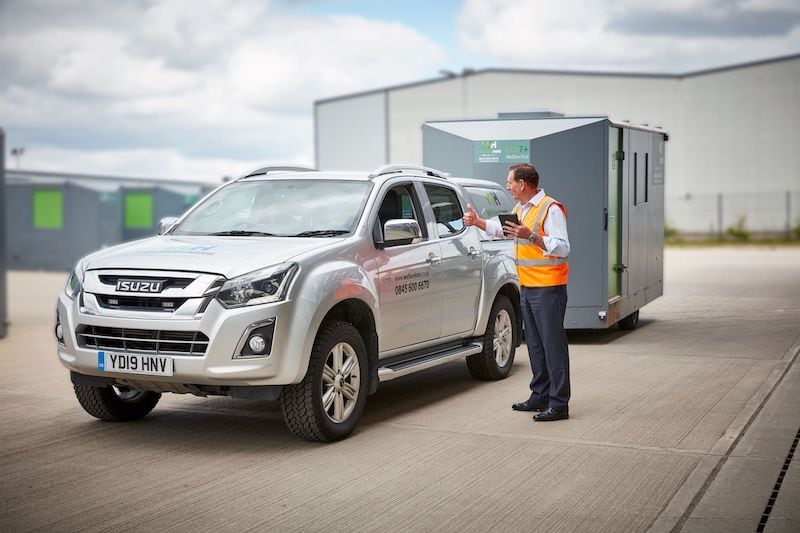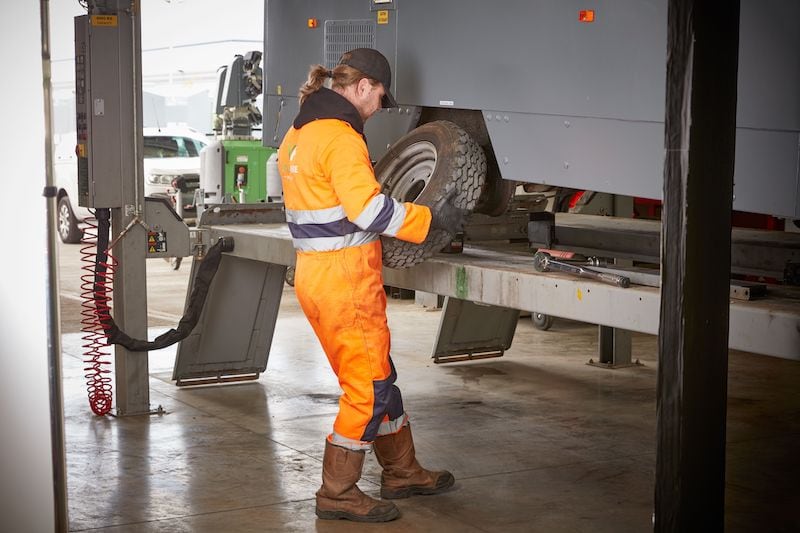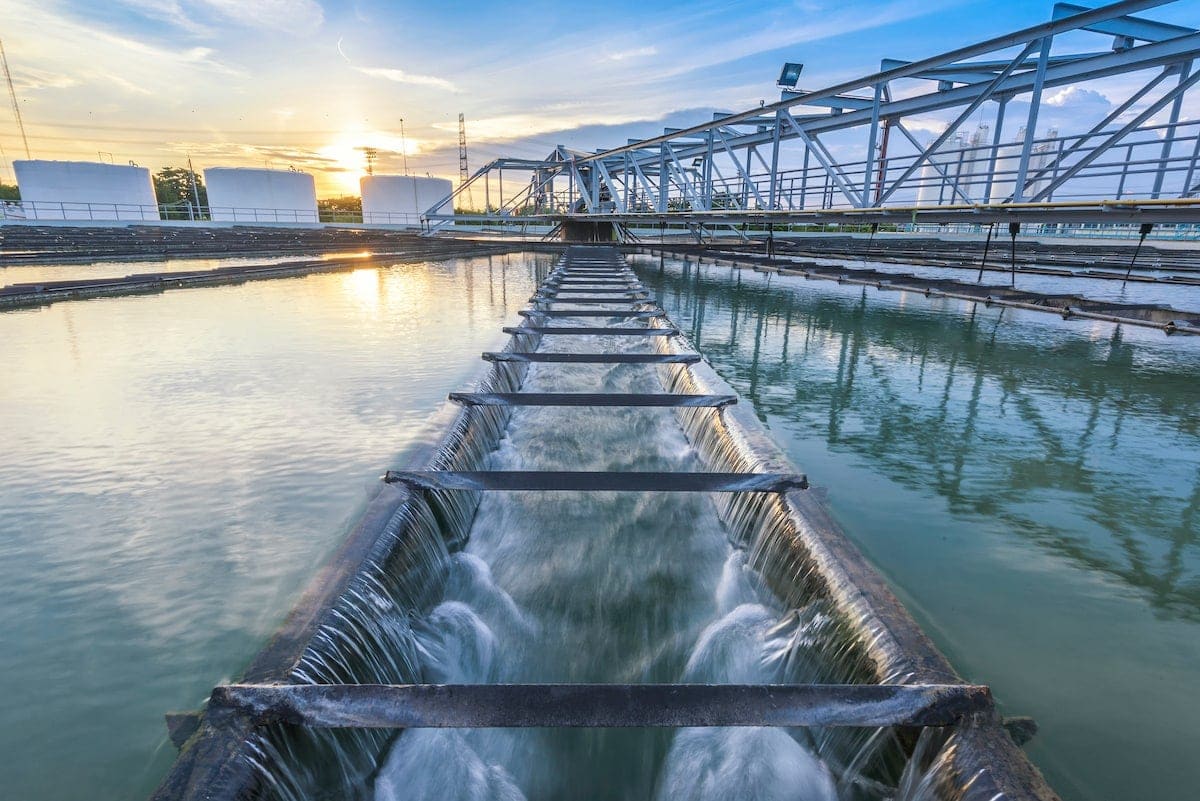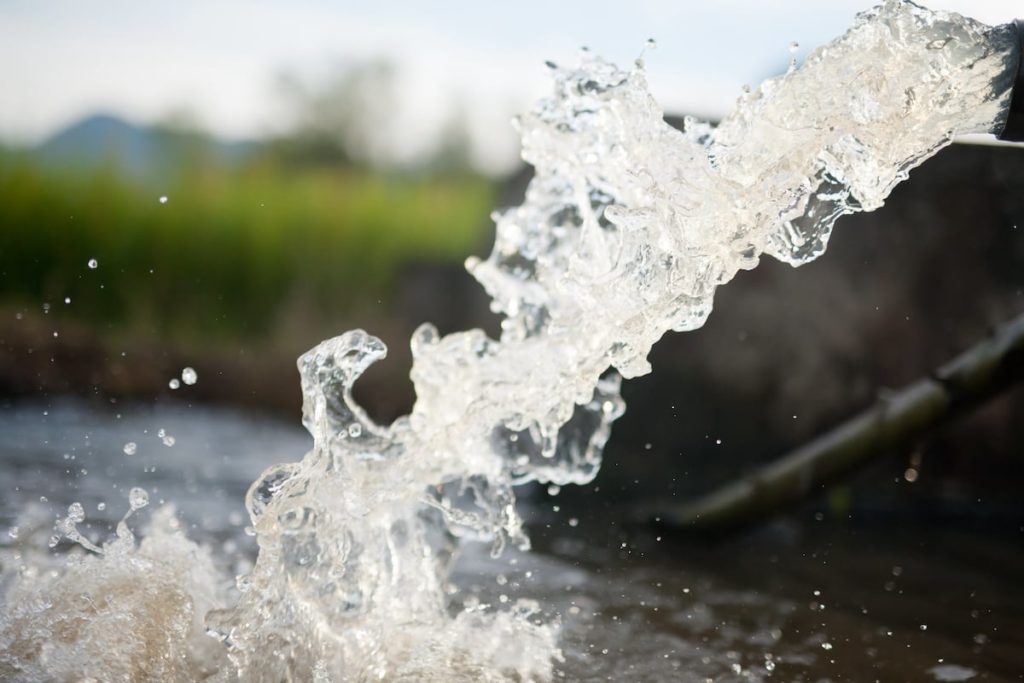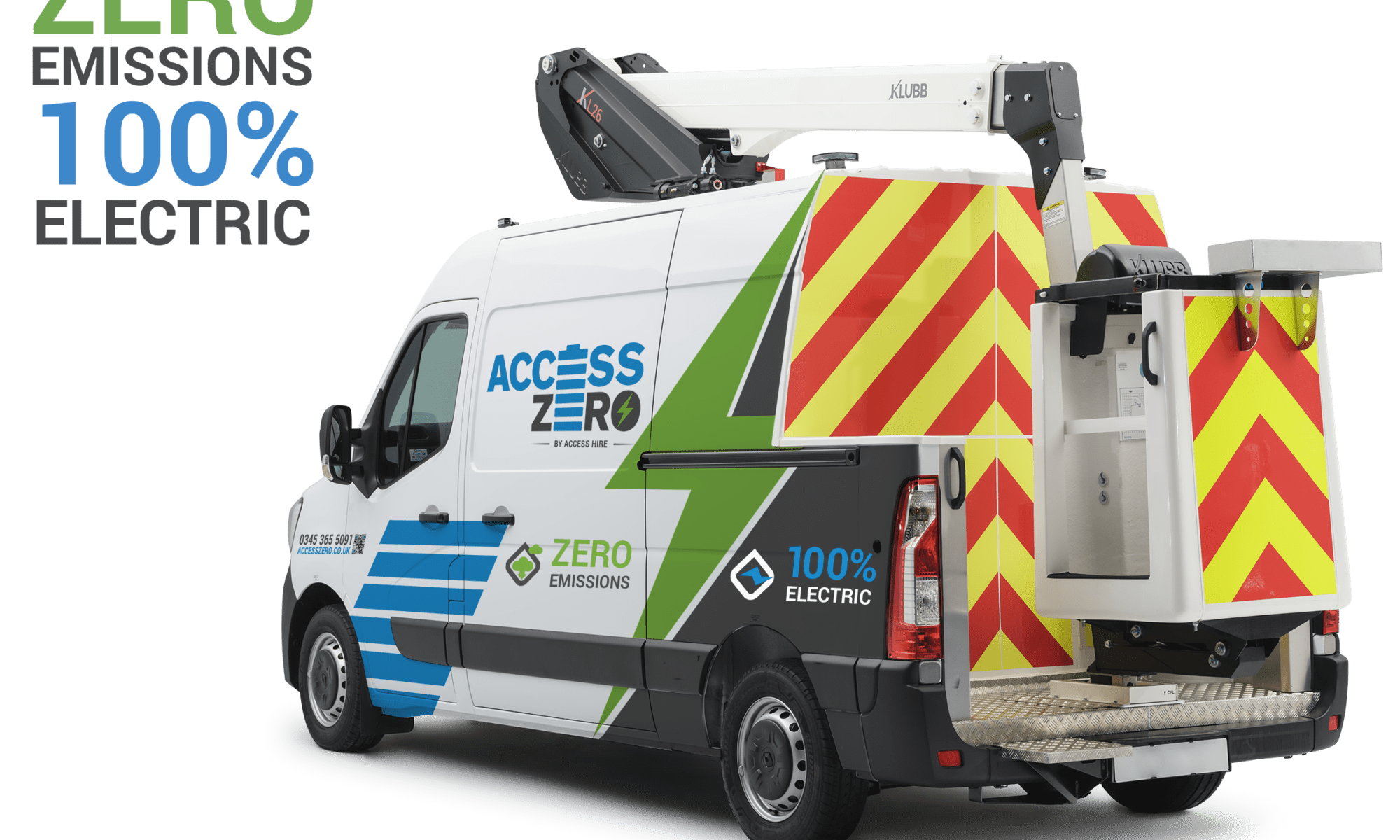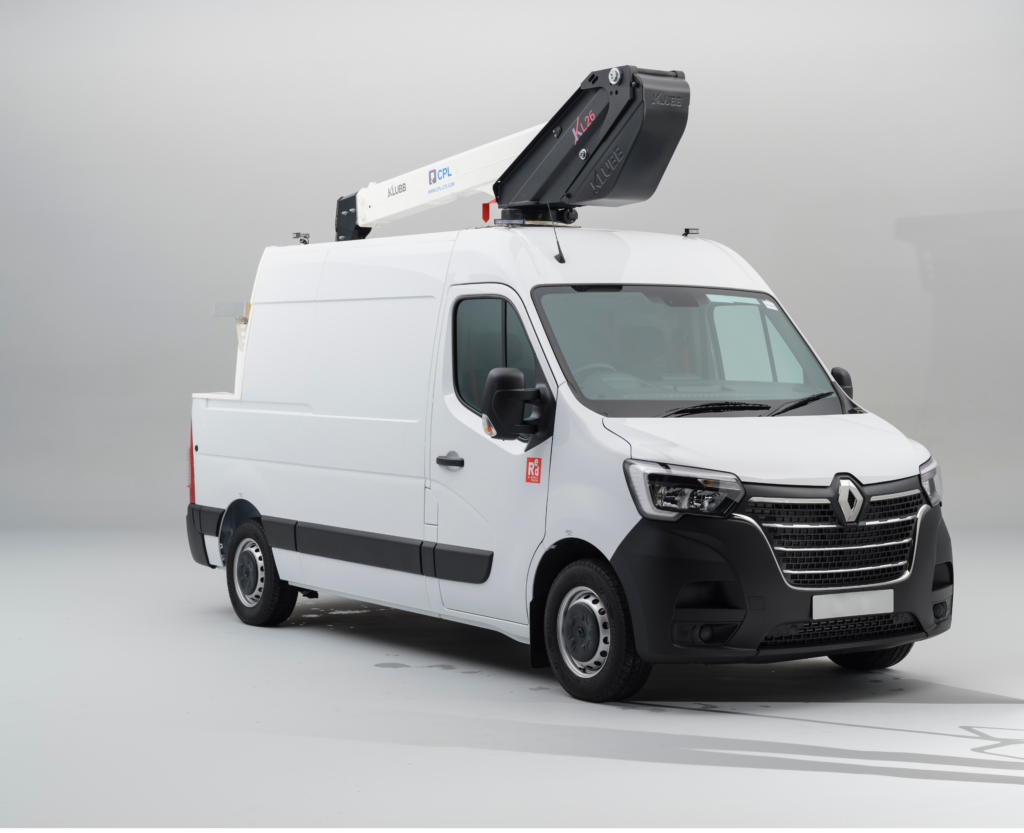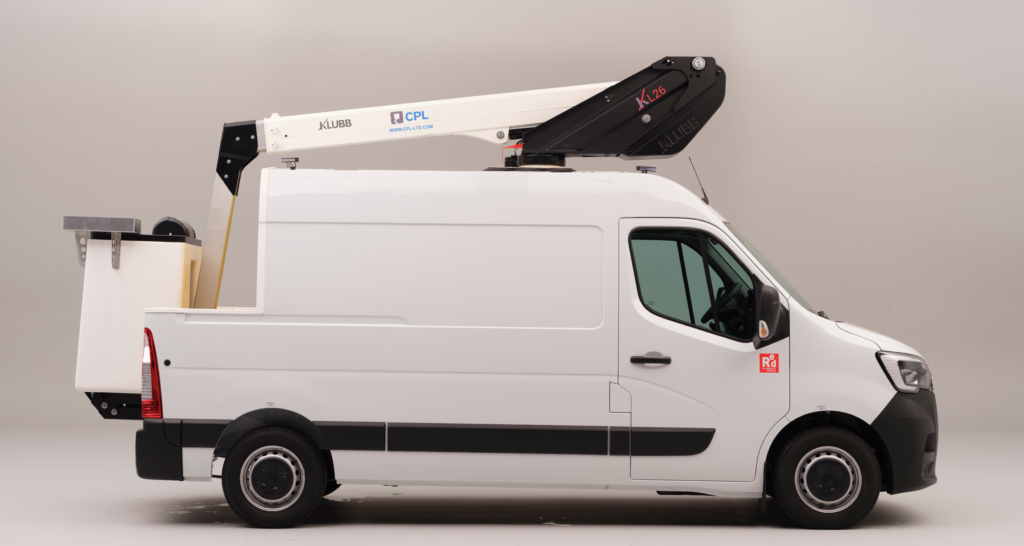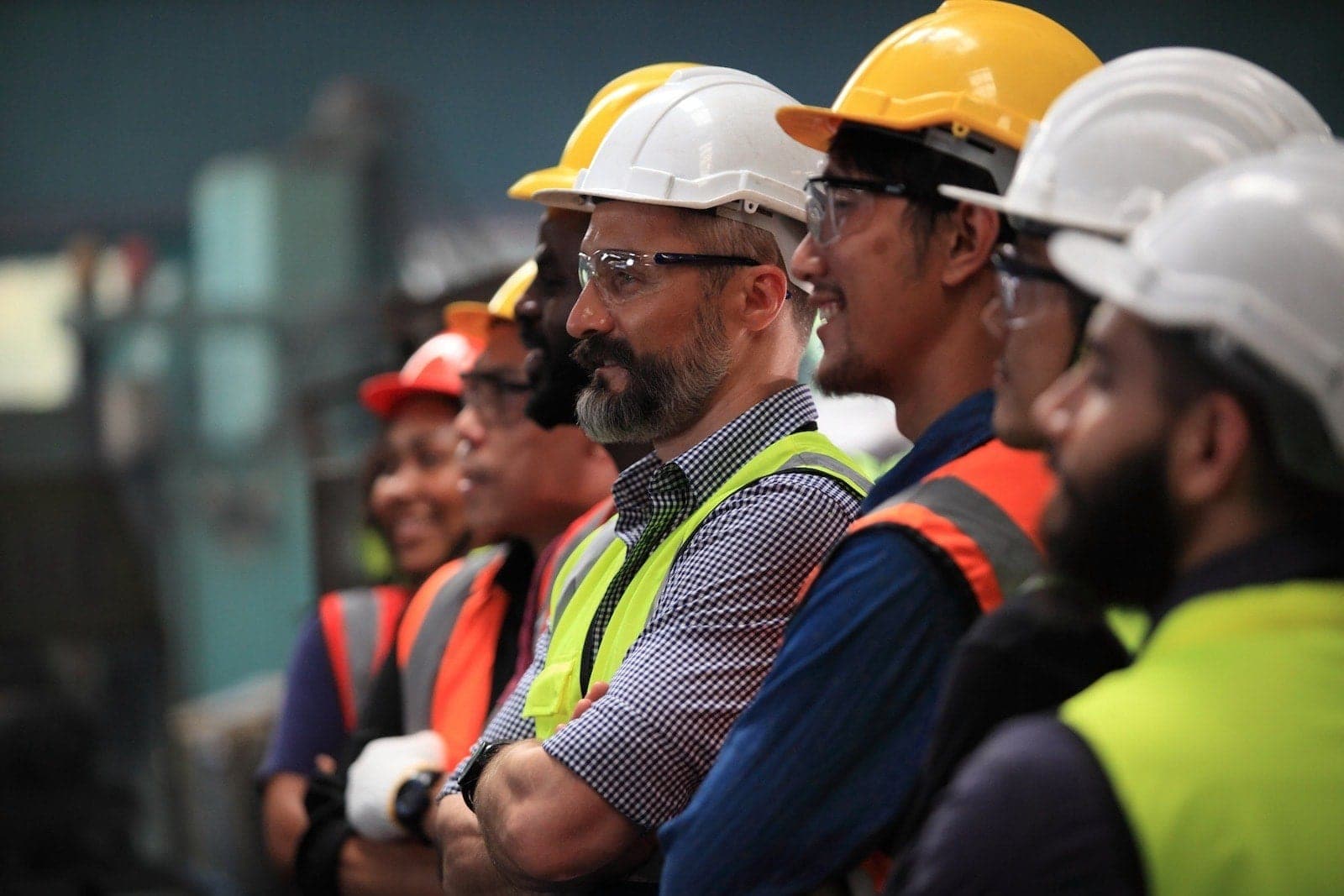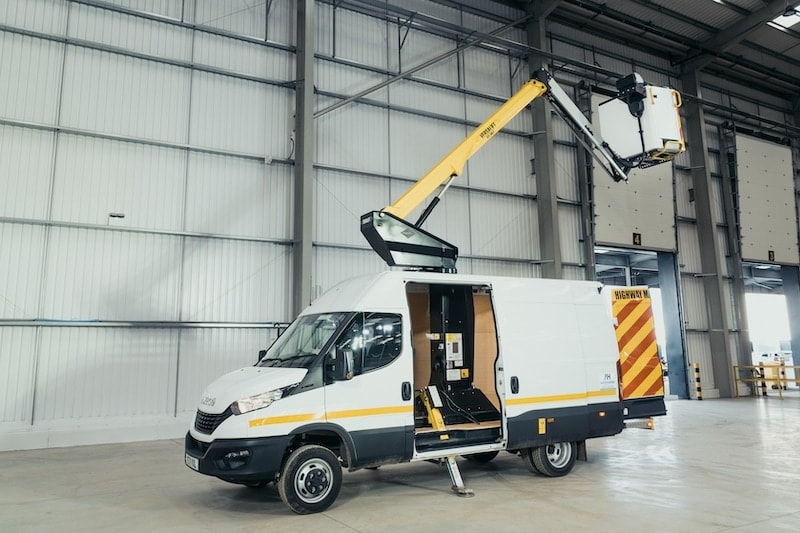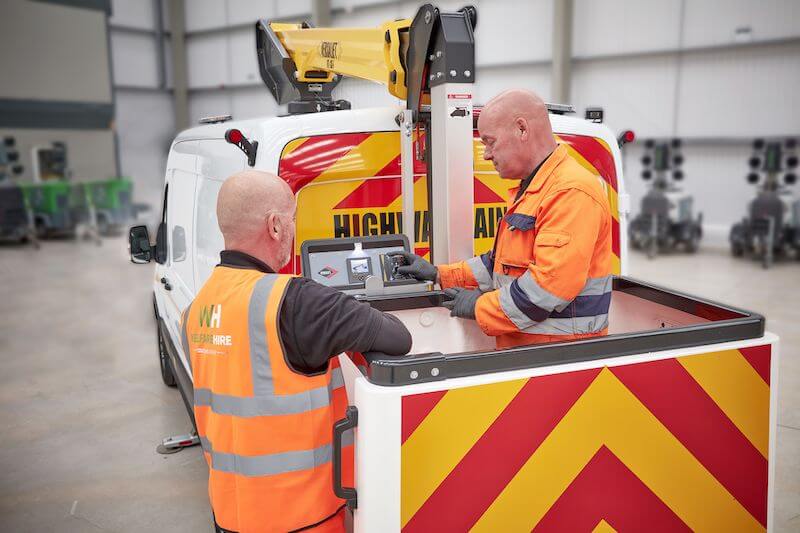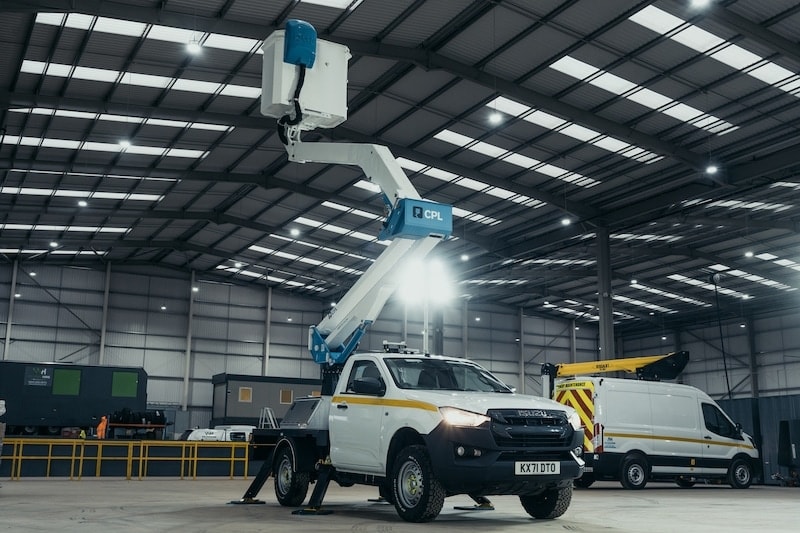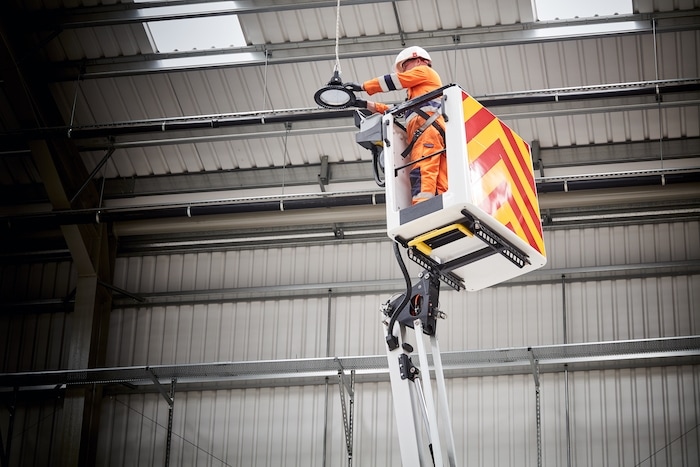Sustainability is top of the agenda for most local councils. But delivering sustainable infrastructure projects is easier said than done.
Despite the recent announcement of extra Government funding ¹, the process of planning, managing and delivering sustainable infrastructure is a huge challenge. Tier 3 emission accounting means leaders need to implement green alternatives across their entire supply chains – and this creates a serious problem for many councils.
A gap in the sustainability market
Key infrastructure projects require strategic equipment like Van Mounted MEWP. But these are generally seen as a big source of carbon and noise emissions. Today, fully-electric alternatives exist – they have just not been readily available to local authorities.
Access Zero offers the UK’s first fleet of fully-electric Van Mounted MEWP, enabling infrastructure projects to run more smoothly and with far less impact to the environment.
Here are three ways electric Van Mounted MEWP help local councils achieve their sustainability goals:
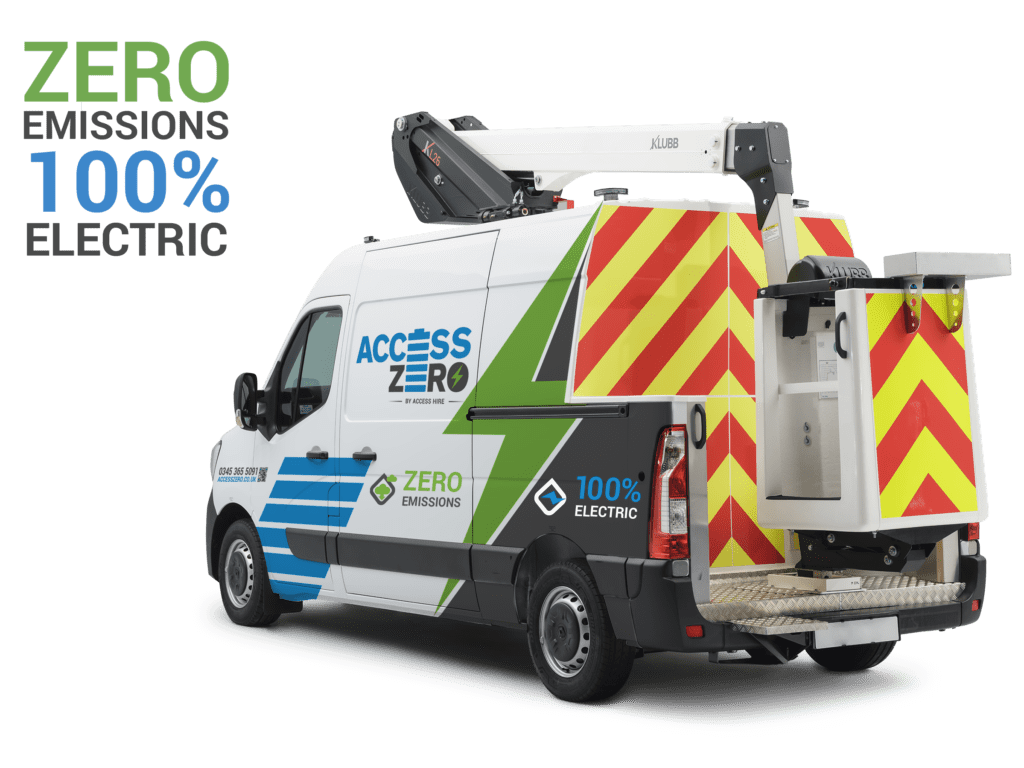
1. Reduced emissions
The construction, operation and maintenance of infrastructure are responsible for roughly 16% of the UK’s total carbon emissions ². The machinery and vehicles used during projects is an important part of this – yet these emissions are often seen as inevitable.
Fully-electric Van Mounted MEWP solve that problem – producing zero emissions and requiring far less energy to run. This helps radically reduce the overall output of mobile workforces. It also makes projects easier to run in densely populated urban areas where Ultra Low Emissions Zones (ULEZ) are more common ³ .
2. Easier budgeting
According to recent reports, 7 in 10 UK councils are struggling to finance their net-zero transition. ⁴ This puts pressure on leaders, even with extra funding from the government. And since green options are generally seen as more costly, many contractors struggle to afford electric vehicles.
This is why Access Zero offers a fully inclusive maintenance solution, enabling local authorities to hire the latest access platform technology in confidence and easily forecast their cash flow due to not having to account for any service or maintenance costs. This means opting for electric Van Mounted MEWP doesn’t mean sacrificing other green initiatives or creating an unmanageable budget deficit.
3. Minimise noise pollution
Noise pollution is less widely publicised than air pollution, but it is just as harmful to the health of the local population. Researchers estimate that excessive noise costs the UK economy £20 billion each year. And Councils have a clear mandate to reduce noise from infrastructure projects – especially in urban areas.
Electric Van Mounted MEWP operate silently. This removes a huge source of on-site noise emissions and makes the environment more pleasant for both workers and civilians.
